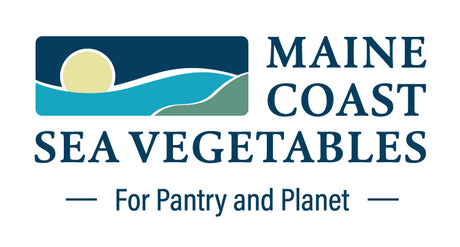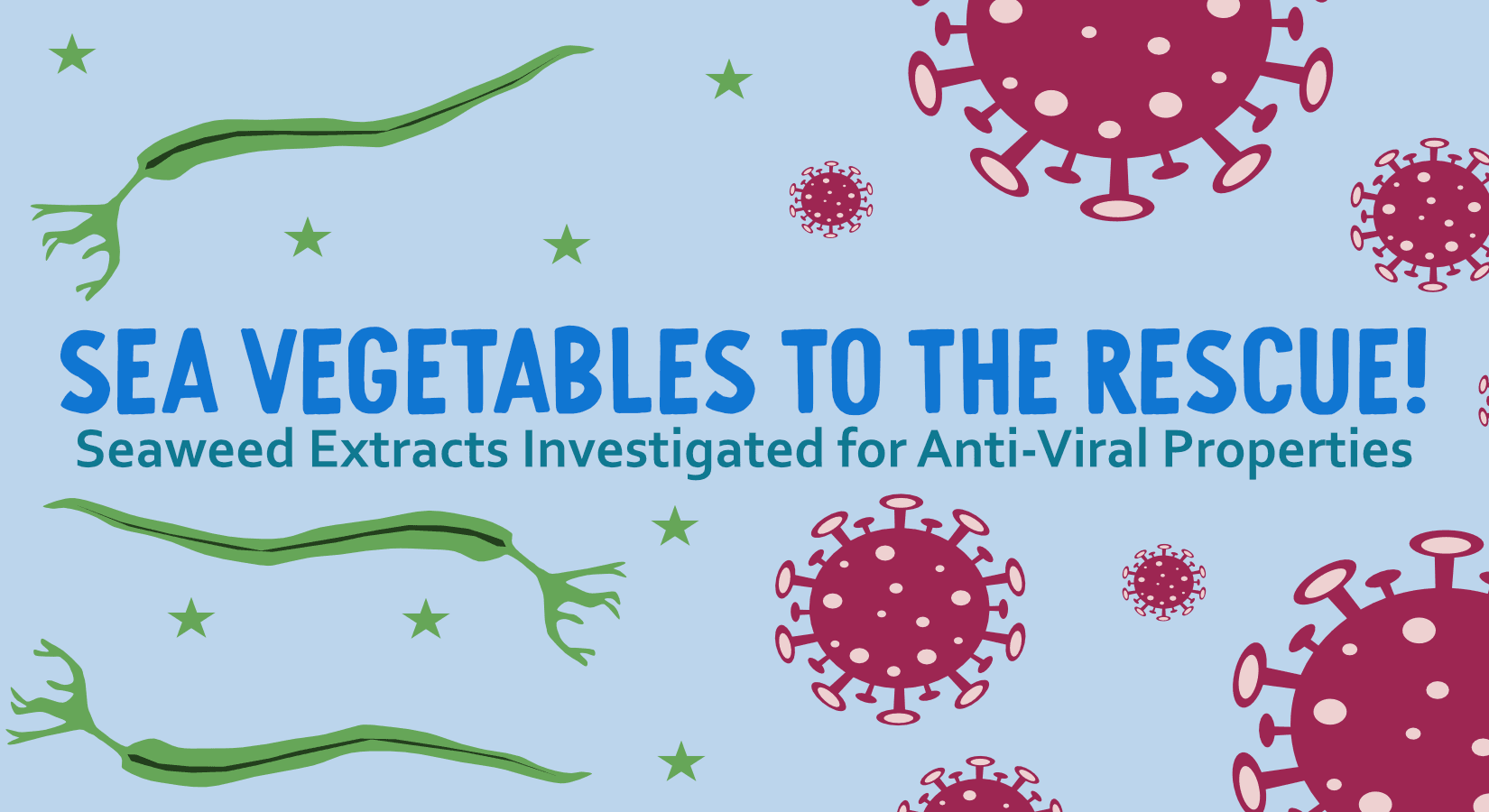Can seaweed be a weapon against covid-19 and other viruses? The evidence shows that it can be. Seaweed extracts have made news recently for potentially being more effective against covid-19 then remdesivir, which is currently considered the most effective pharmaceutical therapy. Although fighting off covid-19 may not be as simple as including seaweed in a smoothie, scientists are working on ways to turn seaweed extracts into useful anti-viral therapies. These efforts are supported by a large and growing body of research demonstrating the antimicrobial properties of seaweed.
Researchers at Rensselaer Polytechnic Institute recently tested extracts from Saccharina japonica, a type of brown kelp known as kombu and extensively cultivated in Japan, China, and Korea. The extracts consisted of seaweed polysaccharides known as fucoidans, which are found in a variety of brown seaweeds and are especially plentiful in kombu. The scientists discovered that fucoidan essentially acted as a decoy molecule that tricked the covid-19 virus into binding to fucoidan rather than to mammalian cells. Once it’s bound to fucoidan, the viral particle becomes trapped and eventually degrades. The researchers found that fucoidan was substantially more effective at neutralizing the covid-19 virus than remdesivir. The sugar kelp species offered by MCSV as ‘wild Atlantic kombu’ is closely related to S. japonica and is also rich in fucoidans.
This decoy strategy has been used to trap other viruses such as dengue, zika, and influenza A, but previous decoys were synthetic polymers made using structural DNA nanotechnology. Because these are new, synthetic molecules, extensive safety trials would be required before they could be approved as therapeutants in humans. Scientist hope that natural molecules from seaweed, such as fucoidan, could be more quickly approved because they’re extracted from a food already classified as Generally Recognized as Safe (GRAS) by the FDA.
Related work by Chinese researchers showed that a carbohydrate found in the seaweed Ecklonia kurome, a brown kelp species known as “Kun-Bu” in China, was also effective against the covid-19 virus. Kun-Bu has a long history of use in traditional Chinese medicine to soften and dissolve phlegm, promote diuresis (increased urination), and ease edema (swelling caused by excess fluids). The Chinese scientists extracted a polysaccharide from Kun-Bu that completely blocked the activity of a key enzyme used by the virus in the process of transcription and replication.
The kombu and Kun-Bu extracts that were so effective against covid-19 are both sulfated polysaccharides. As their name suggests, these differ from regular polysaccharides by having one or more sulfur molecules attached to them. Polysaccharides are a complex carbohydrate consisting of carbon, hydrogen, and oxygen. The addition of a sulfate group to this composition confers increased bioactive properties. Sulfated polysaccharides are found in a variety of different foods but seaweed is especially rich in them, in both abundance and variety. Sulfated polysaccharides have been the subject of extensive research since the 1960’s, and various studies show that they have bioactivity against cancer cells, bacteria, and viruses. In addition, research shows that sulfated polysaccharides from seaweed are also potentially useful as therapies for obesity, diabetes, and inflammation.
The challenge in unleashing the full potential of seaweed sulfated polysaccharides is that for the most part, they pass through our intestines as indigestible dietary fiber. Although dietary fiber is good for our intestinal health, the bioactive molecules contained within are largely unavailable to our general bodily circulation. Certain bacteria in the colon can break down dietary fibers as fuel, but the bioactive properties would appear to be largely limited to the intestinal tract.
How then do we unleash the power of sulfated polysaccharides in the respiratory tract, where it’s most needed to fight covid-19 and other respiratory viruses?
One idea is to include seaweed sulfated polysaccharides in a nasal spray. Researchers at Swansea University, located in Wales, UK, are carrying out clinical trials of a nasal spray containing carrageenan extracted from red seaweeds as a prophylactic against covid-19. Carrageenan is yet another seaweed sulfated polysaccharide, and most famous as a ubiquitous food thickener. Carrageenan was first derived from Irish moss in the late 18th century in Ireland and Scotland, where it was useful in both the kitchen and the medicine cabinet. Irish doctors would prescribe a concoction of Irish moss, lemon juice, honey, cloves, and sometimes a splash of whiskey to help cure coughs, colds, and flu. This was long before scientists knew of viruses and bacteria. Apparently, this old-time cure has a scientific basis. It was recently reported that the carrageenan nasal spray is now being prepped for mass production because it appeared to offer protection against covid-19 when used four times a day.
Another approach is to incorporate seaweed into hand sanitizer. A Canadian company is doing just that with a product they call “Kelping Hands”. Most hand sanitizers include alcohol for germicidal activity and glycerin gel to prevent drying out user’s skin. Much of the global supply of glycerin comes from the biodiesel industry, where it is actually a byproduct of the manufacturing process and considered to have a relatively high carbon footprint. Seaweed gels made from kelp or other seaweed can replace the glycerin, actually remove carbon from the ocean, and add vitamin E and additional antibacterial properties to the sanitizer.
This year, Maine Coast Sea Vegetables celebrates 50 years of doing business. We’ve long celebrated the flavor sea vegetables bring on their own or added to recipes, and we’ve long known that incorporating seaweed into the diet is a healthy choice. Along the way, we’ve always been interested in the science of seaweed and being able to offer that knowledge to our customers. It’s been exciting and gratifying to see scientific evidence continue to grow in support of the healing properties of seaweed. Of course, this is something that traditional Chinese healers and Irish doctors understood centuries ago!



